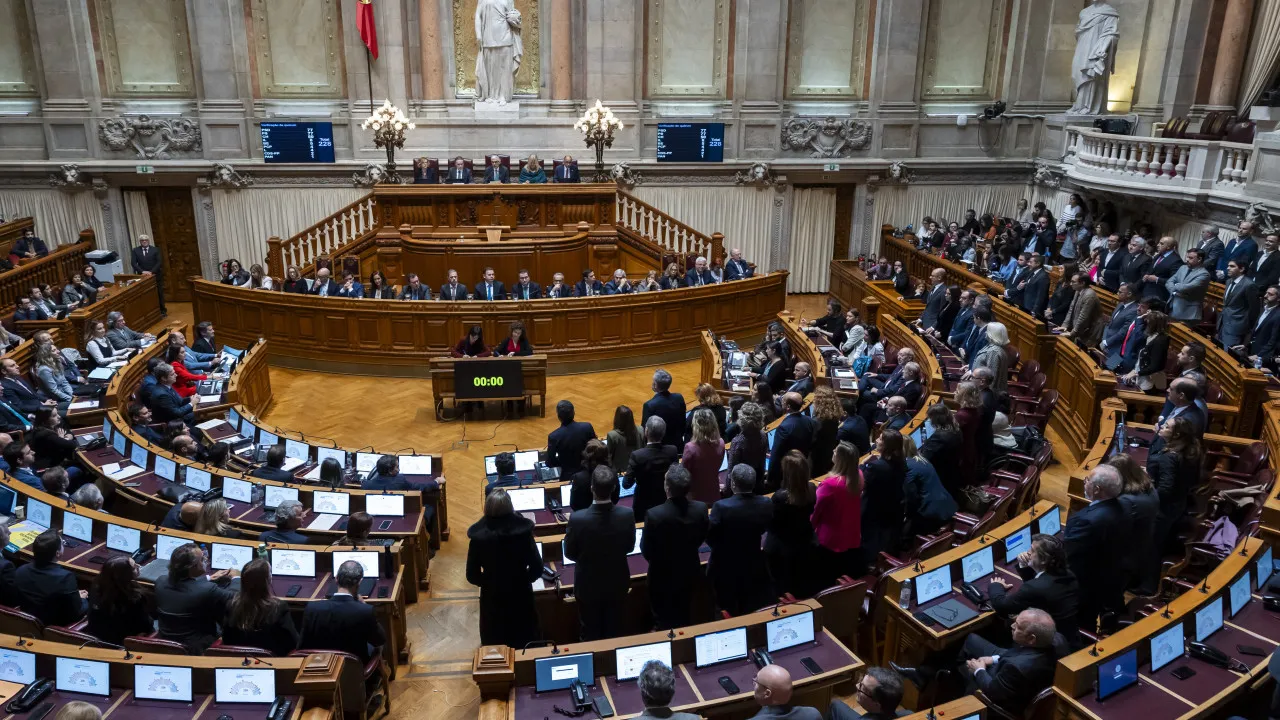
During a press conference related to the upcoming parliamentary debate on Friday regarding their bill to repeal the law that “promotes rights in pregnancy and childbirth,” centrist MP João Almeida acknowledged the possibility of consensus “regarding the repeal of the concept of obstetric violence itself,” though this might not entail repealing “the whole law,” allowing “some protective aspects of the law to remain.”
Under those circumstances, CDS-PP is “completely open” to “working on this” during the detailed debate phase, stated Almeida, emphasizing that, for the party, “the fundamental error” in the legislative process concerning the pregnancy and childbirth rights law, passed this March, was “not hearing all entities.”
“While concerns about pregnancy, childbirth, and post-recovery are perfectly legitimate, we believe the current law is disproportionate, misaligned with reality, and may have adverse social effects. The current law might endanger the lives of children and mothers by prioritizing emotional validation over medical and scientific knowledge,” argued parliamentary leader Paulo Núncio in the same press conference.
The CDS-PP submitted its proposal last month, aiming to repeal Law 33/2025, published on March 31, which “promotes rights in pregnancy and childbirth.” This law was approved in March with opposition votes from PSD, CDS-PP, and abstentions from Chega and Iniciativa Liberal.
João Almeida remarked that the current law “emerged from an initiative by two parties, PAN and BE, ignoring all others and enshrining a concept that exists in common language, often in pamphleteering language, but does not correspond to a scientific concept.”
“The World Health Organization denies the existence of obstetric violence, not because there are no poor practices in childbirth, but because these poor practices have other definitions and are better prevented by adhering to those definitions,” he stated, noting opposition from the Order of Physicians and the Order of Nurses.
Almeida argued that medical negligence is already punishable and opined that the current law “only creates noise,” failing to avert any existing situations and placing doctors in a position where, in doubt, they might refrain from performing medical acts vital for safeguarding the health of mothers or children.
A PSD proposal on the same issue, which removes the concept of obstetric violence from the law by considering it “excessively broad and undesirably vague,” will also be discussed on Friday.
The second article of the law considers obstetric violence as physical and verbal acts by healthcare professionals stemming from dehumanizing behavior, excessive medicalization, or “pathologizing natural processes, disregarding the protection regime,” from preconception until birth.
The law also established a legal framework for episiotomy [an incision in the perineum to enlarge the birth canal], advocating for its eradication as a routine practice, as recommended by the World Health Organization.
According to the law, conducting routine episiotomies and other unjustified practices could lead to disciplinary investigations into healthcare professionals or financial penalties for hospitals. PSD plans to repeal this article.




